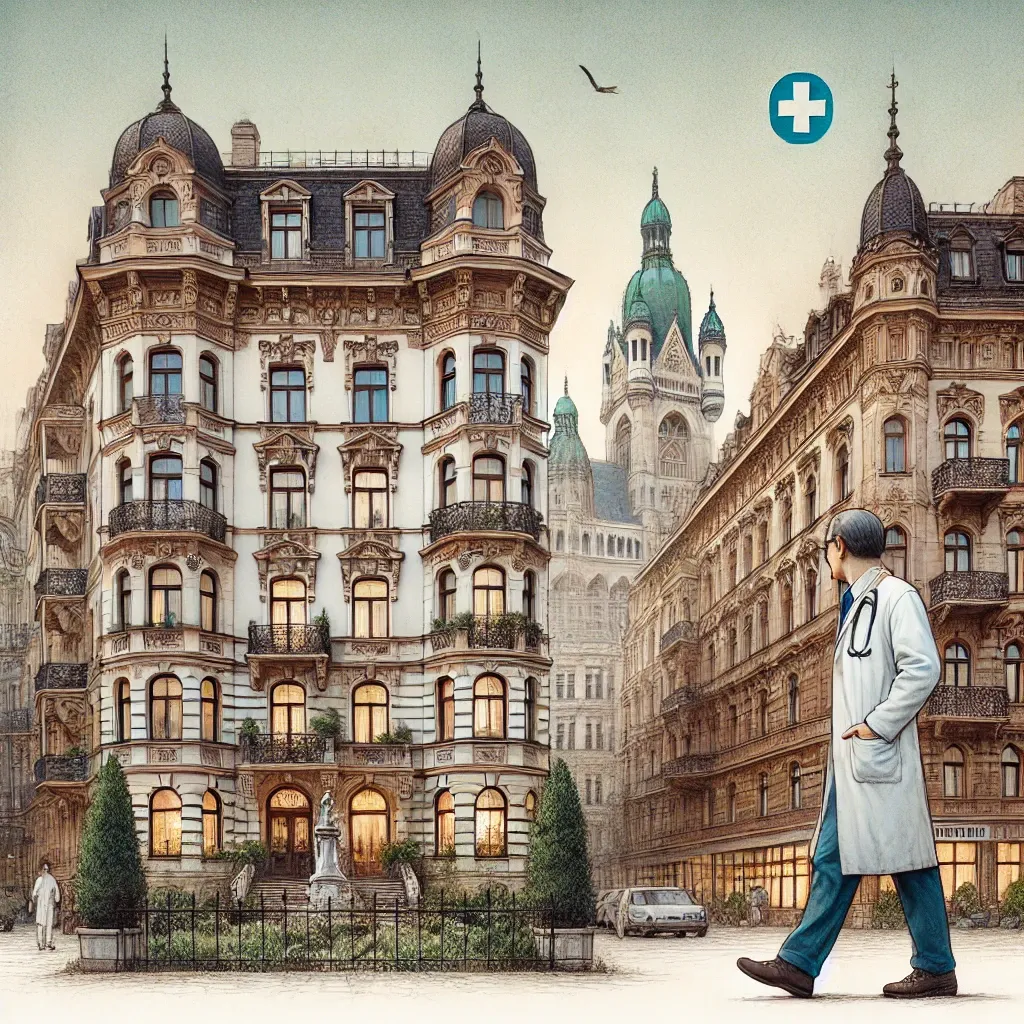Medicine in Switzerland, Austria, and the United Kingdom

- Life and medicine in Switzerland and Austria
- Medical care in Austria: structure and features
- The housing market in the UK and Italy
Switzerland: a wealthy life and quality healthcare
Switzerland- a small but proud state with a rich and expensive life. People-oriented, it takes care of its citizens by providing a high level of medical care. The country has a modern health care system, where most of the services are covered by the state, and the rest is paid for through health insurance, which every Swiss has.
Switzerland is known worldwide for its high-quality healthcare – from plastic surgery to oncology. It is home to advanced medical facilities equipped with modern technology. Each canton has its own hospital, where world-renowned doctors work. Additionally, Switzerland has many reputable private clinics specializing in various fields.
In 2016, the real estate market in Switzerland slowed down, but prices remain high. For example, small two-room apartments in a chalet in Gstaad can cost €270,000, in Bern – €460,000, and the most modest house by the lake is around half a million euros.
Austria: accessible healthcare for everyone
Austria– another country where healthcare is funded by the budget, through contributions to social insurance and taxes. Basic medical services are available for free to citizens and even tourists. Social insurance covers examinations, treatment, dentistry, surgical operations, hospital stays, services from doctors and nurses, as well as maternity benefits.
Austria has been among the top ten countries in the world in terms of medical care for many years. The state provides the population with quality health care services, paying special attention to the medical needs of its citizens. Commercial health insurance is also available for those who wish to receive additional medical services.
Medical care in Austria
For those who do not have health insurance or wish to improve their health in high-class private clinics, significant funds must be allocated. The Federal Ministry of Health in Austria has built a well-coordinated system of institutions: from medical offices at the regional level to a mandatory doctor in every district. It is surprising that there are no polyclinics in this country where primary care is provided by general practitioners. They operate private practices or partially state-funded practices. In villages, the homes of doctors are marked with signs. Each rural (or district) doctor in cities effectively serves as a family doctor. Without their referral, one can only consult a dentist or gynecologist.
The real estate market in Austria
The real estate market in Austria is characterized by high prices. A high standard of living and economic stability attract investors, driving up property values. For example, a two-room apartment with an area of 48 square meters in Vienna can cost over €200,000. Small houses by the lakes, which are popular among foreign retirees, are valued from €750,000 to €1 million.
Healthcare for foreign citizens in the UK
The UK is the only Western European country where 95% of health care facilities are state-owned. The services of the national health care system are free of charge for citizens and taxpayers. Exceptions are ophthalmologist, otolaryngologist and dental treatment. In state clinics, dental services are paid, although they are cheaper than in private offices. Benefits for free dental treatment under state insurance apply only to pregnant women and mothers within a year after childbirth, and prescriptions are covered.
- Foreign citizens can expect to receive emergency medical care for free, but they will have to pay for scheduled treatments.
- State clinics provide basic medical needs, but there is also a network of private medicine.

United Kingdom
Despite expert forecasts, housing in the UK continues to surprise with its record prices even after Brexit. Prices for apartments in London often exceed €400,000, and new builds are not much cheaper. Finding housing in London for less than €500,000 is becoming increasingly difficult.
Italy
Italy offers excellent conditions for living and investing. The average life expectancy here is 82 years, thanks to the high quality of medical care. Most medical services are available for free, even for illegal residents. Laboratory and some other services may require payment, but a significant portion of the population is exempt from these costs.
Private health insurance is not as common in Italy because of the extensive coverage of the public health care system. Some services, such as dentistry or certain surgeries, require additional fees. Good deals can be found on the Italian real estate market. Housing prices here are still stable after the crisis. For example, a one-bedroom apartment inRome can be purchased for as little as €135,000, making it affordable for many buyers.
Conclusions
So, Italy attracts not only with its quality healthcare but also with investment opportunities in real estate, providing a high quality of life for all its residents and inhabitants.
Switzerland
Switzerland is a small but proud, or rather wealthy and expensive, country. At the same time, it is people-oriented. The average Swiss citizen is calm, balanced, hardworking, and lives to be 83 years old.
9 October 2024
29 September 2025
29 January 2025
29 January 2025
9 October 2024
Medicine cannot be called free, although a large part of the services is still covered by the state. The rest is paid for by citizens through health insurance, which every Swiss citizen has. It provides clear guarantees that in case of health issues, a person will receive medical assistance without additional costs.
Switzerland is known worldwide for plastic surgery and, at the same time, holds leading positions in the fields of neurosurgery, cardiac surgery, oncology, orthopedics, and reconstructive surgery. Medical institutions are equipped with modern medical equipment. Additionally, Switzerland is one of the world leaders in pharmaceutical production. There are public hospitals in every canton, which host medical faculties and employ doctors of international renown. At the same time, Switzerland has many reputable private clinics of various specializations.
Real estate
In 2016, the Swiss real estate market slowed down, but prices remain impressive. For example, a small two-room apartment of 50 square meters in a chalet in Gstaad will cost €270,000. A similar property in Bern is €460,000. The most modest house by the lake is around half a million euros.
Austria
In Austria, healthcare is funded through social insurance contributions and taxes, meaning it comes from the budget, and only to a small extent from private funds: fees for issuing prescriptions, the participation of insurers in covering losses, and contributions to private health insurance. Based on experience, this is sufficient, as the country has been among the top ten in healthcare for many years.
Austrians and even tourists are entitled to free basic health services. All working citizens are covered by social insurance, which covers laboratory tests, examinations and treatment, including dental care, surgery, hospitalization, services of doctors and nurses, and maternity allowance. In addition, there is the so-called commercial insurance, which is more often chosen by wealthy people.
For those without insurance or those wishing to improve their health at premium private clinics, it will be necessary to spend some money.
The Federal Ministry of Health has a clear system of institutions: from medical administrations at the state level (federal state) to a doctor that is mandatory for each community. An interesting point is that there are no polyclinics in Austria. Primary medical care is provided by practicing doctors (similar to our therapists). They have private practices or practices partially supported by the federal state. In small settlements, the doctor's house is always equipped with the appropriate sign. The village doctor (in larger towns, the district doctor) essentially serves as a family doctor. Without a referral from him, you can only see a dentist or a gynecologist for free.
Real estate
Austria is not known for low housing prices. The high standard of living and stable economy attract investors to the country, which drives real estate prices up. A two-room apartment in Vienna with an area of 48 square meters will cost over €200,000. And the sought-after cottages by the lakes, which are so loved by foreign retirees, typically range from €750,000 to €1 million.
United Kingdom
The only country among Western European nations where 95% of medical institutions are state-owned. The services of the national health service are free for British citizens and taxpayers.
The exception will be the appointments with the ophthalmologist, otolaryngologist, and the infamous dental treatment. For the services of dentists working in public clinics, you will have to shell out some money. However, they will still be much cheaper than in a private dental office. Only women during pregnancy and 12 months after giving birth can get dental treatment for free under public insurance. There is also a fee for prescriptions.
At the same time, citizens of other countries of the world are not left to fend for themselves. Emergency medical care is provided free of charge to anyone who needs it. But for non-emergency treatment, you will have to pay.
Most healthcare needs are met by public clinics, but there is also a well-developed network of private medical centers in the country. It will be expensive, but fast and of high quality. In a public hospital, there may be a long wait to see a specialist. An alternative to private medicine is private health insurance. It can help reduce the waiting time to see the necessary specialist. However, it should be noted that not all conditions/diseases are covered by insurance.
Comment
Popular Posts
9 October 2024
1487
29 September 2025
393
29 January 2025
1530
9 October 2024
9943
Popular Offers

Subscribe to the newsletter from Hatamatata.com!
Subscribe to the newsletter from Hatamatata.com!
I agree to the processing of personal data and confidentiality rules of Hatamatata














